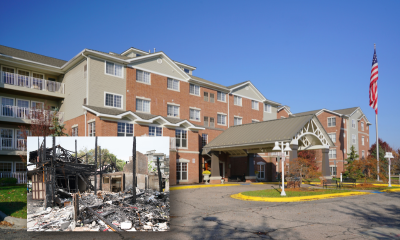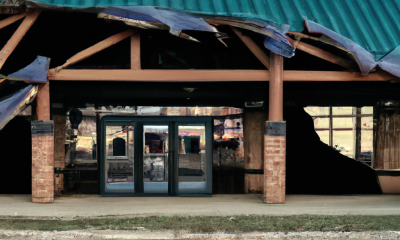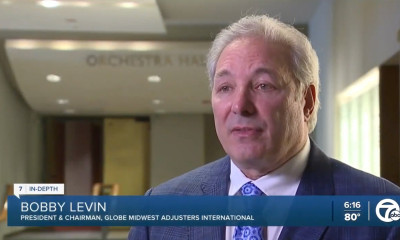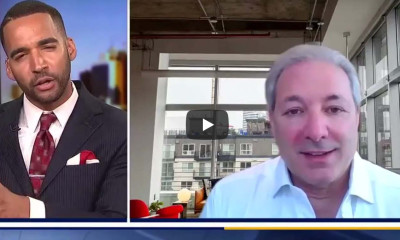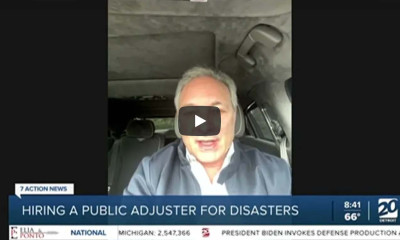Multi-Facility Claims: Grasping the Uniformity of Rates Clause
For conglomerate nursing home entities managing multiple facilities, the occurrence of a widespread natural disaster is not just an operational challenge; it brings into sharp focus the importance of a specific insurance provision - the "Uniformity of Rates Clause." This clause is particularly relevant to large, multi-facility organizations, as it determines how losses are distributed and claims are reimbursed across their diverse locations. It's a critical component of their insurance strategy, ensuring they can sustain care and operations across all sites during and after such catastrophic events.
Reinsurance, the practice where an insurer transfers portions of risk to other parties to reduce the likelihood of large payouts, is fundamental in risk management for large nursing home conglomerates. Within reinsurance agreements, the Uniformity of Rates Clause is particularly critical. This clause plays a pivotal role in determining how losses are reimbursed across multiple facilities under a single corporate umbrella. Additionally, clauses like non-contribution or "escape" clauses, excess of loss clauses, and rateable proportion clauses are crucial in scenarios where insurance policies for similar incidents overlap at different facilities. A thorough understanding of these clauses is essential for conglomerates to ensure they have adequate coverage and financial protection when dealing with multi-facility claims.
Case Study: Poplar Creek Nursing Home
A severe storm caused a power outage at Poplar Creek Nursing Facility, impacting three of its nursing homes and resulting in significant operational disruptions and financial losses. Each facility, under the same corporate umbrella, was insured under distinct policies with unique clauses and coverage limits, tailored to their specific risks and needs.
In dealing with the insurance claims post-storm, the Uniformity of Rates Clause in their policies played a pivotal role, aimed at standardizing reimbursement rates across the facilities. Significantly, one facility, with a policy containing a stringent "escape" clause, used this to transfer a major part of the financial burden to the insurers of the other two facilities, which had less restrictive clauses. This move, utilizing the "escape" clause, effectively minimized its liability by deferring the claim to the other facilities' insurance.
This case at Poplar Creek Nursing Facility underscores the complexity of insurance policies in large nursing home conglomerates and the critical importance of understanding specific clauses. It demonstrates the need for meticulous management of insurance documents, highlighting how these clauses can significantly influence the financial resolution of large-scale claims.
Maximizing Insurance Benefits in Nursing Home Operations
For nursing home operators, the ability to fully utilize the resources available through their insurance policies, especially clauses like the Uniformity of Rates, is crucial. The Uniformity of Rates Clause, for instance, can be a powerful tool, allowing operators to effectively navigate complex claims and optimize financial recoveries. Its strategic use demonstrates the importance of not just having insurance but understanding how to leverage its specific provisions when most needed.
In the face of substantial losses, it is often advisable for nursing home operators to actively engage with reputable public adjusters. Established public adjusting firms such as Globe Midwest™ Adjusters International bring a wealth of experience, having handled thousands of claims, and possess deep insights into the complex language and nuances of insurance policies. Their expertise is invaluable in navigating intricate insurance terms and ensuring that nursing homes receive the maximum possible benefit from their policies. In situations involving significant claims, the knowledge and negotiation skills of experienced public adjusters can make a critical difference, helping nursing home operators to effectively manage the claims process and maintain their focus on providing quality care to their residents.
__________________
About the Author
Stuart Dorf, JD, CPAU | Executive Vice President
Stuart Dorf, JD, CPAU, Executive Vice President at Globe Midwest™ Adjusters International, is a licensed public adjuster, appraiser, umpire, and attorney who specializes in securing fair insurance claim settlements for property and business owners. With over 20 years of experience in commercial real estate, law, and marketing, he holds licenses in multiple states, actively participates in legal associations, and has a strong entrepreneurial background. He earned his law degree from the Illinois Institute of Technology’s Chicago-Kent College of Law and graduated with honors from Tulane University.
sdorf@globemwai.com | 248.915.0399
Yossi Gottfried, MSA | Regional Vice President
Yossi Gottfried, MSA, Regional Vice President at Globe Midwest™ Adjusters International, is a forensic accountant specializing in business interruption claims. Yossi leads the firm's nursing home/assisted living facility practice group, advising operators on large insurance claims. His expertise lies in applying insurance policy formulas to accurately assess income loss due to property damage, ensuring clients receive a claim reflective of the true monetary value. He holds a Bachelor of Science in Finance from Yeshiva University and a Master’s in Accounting from Wayne State University.
ygottfried@globemwai.com | 248.885.3902







